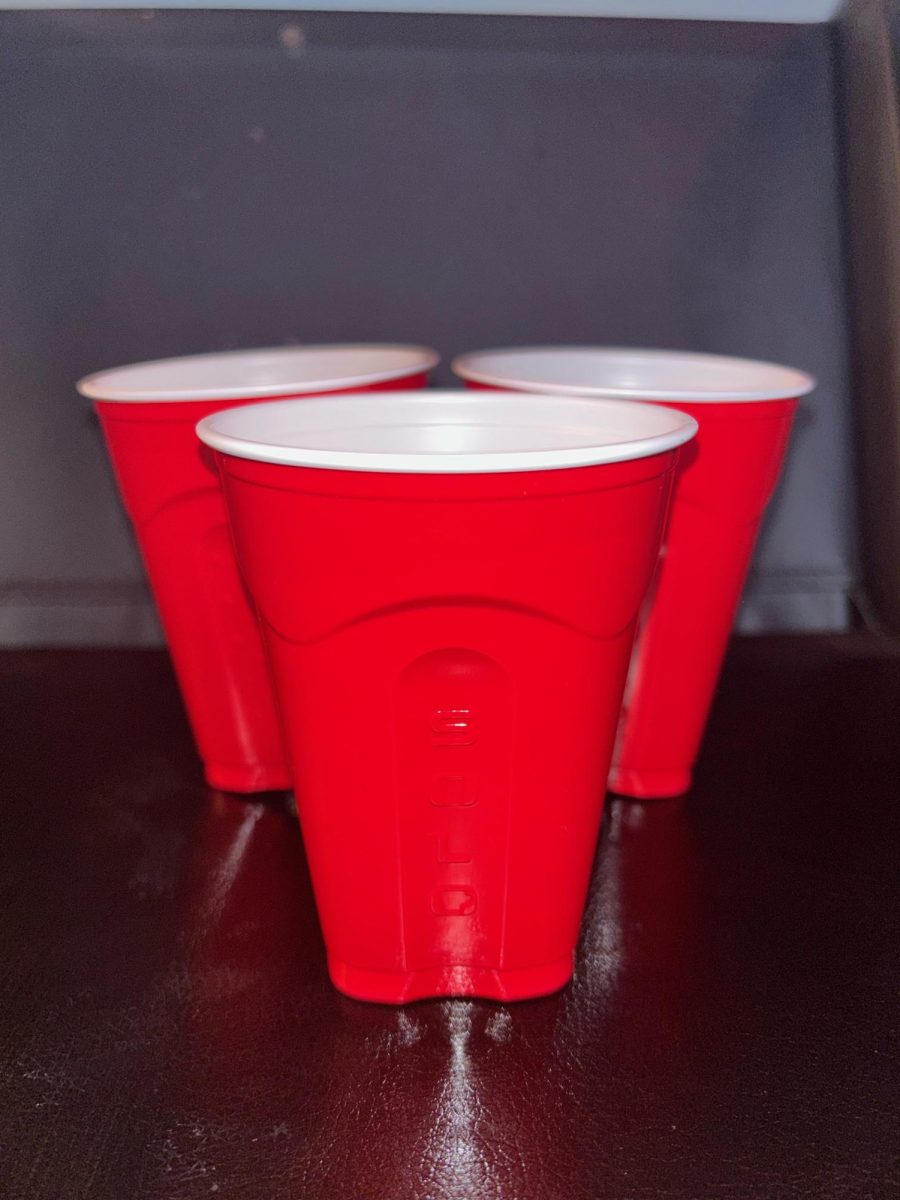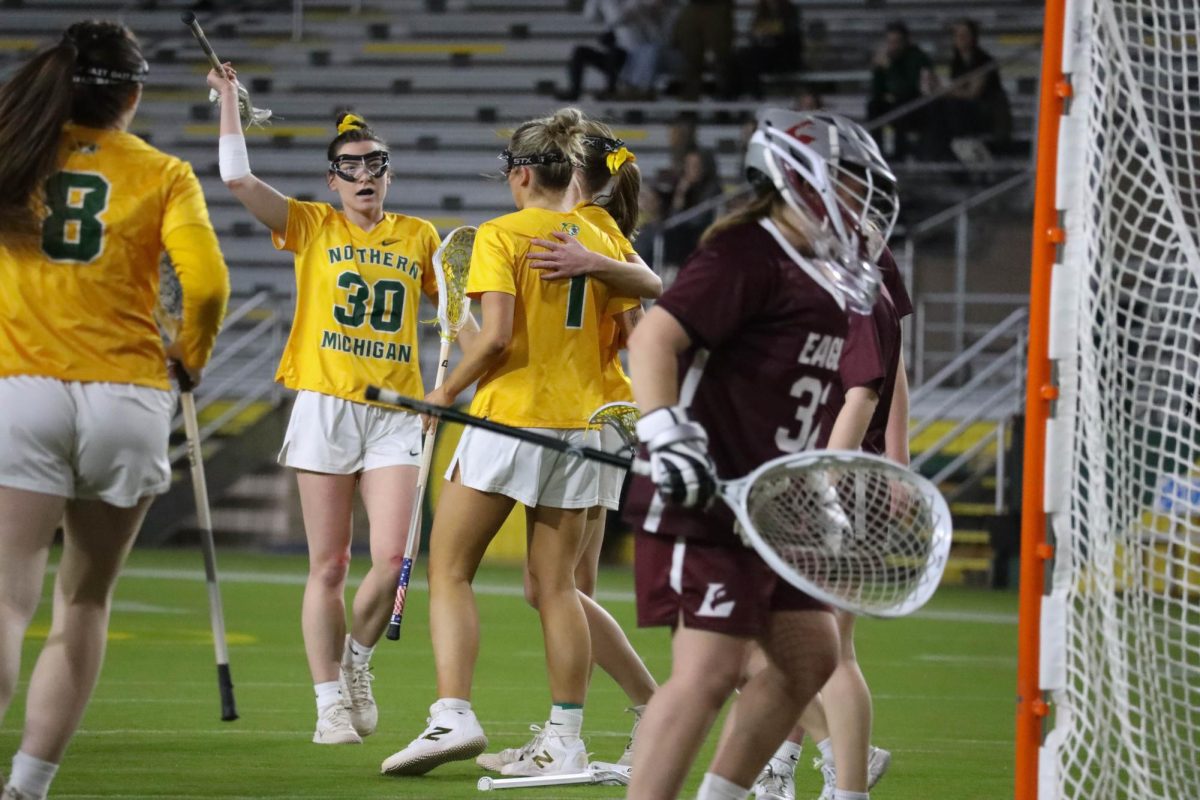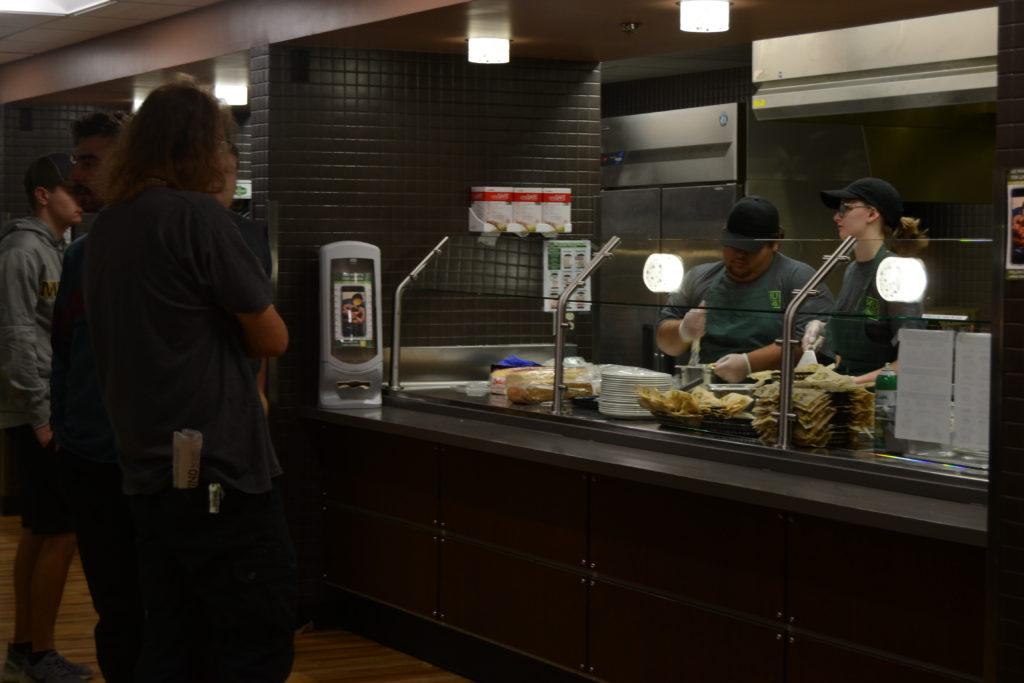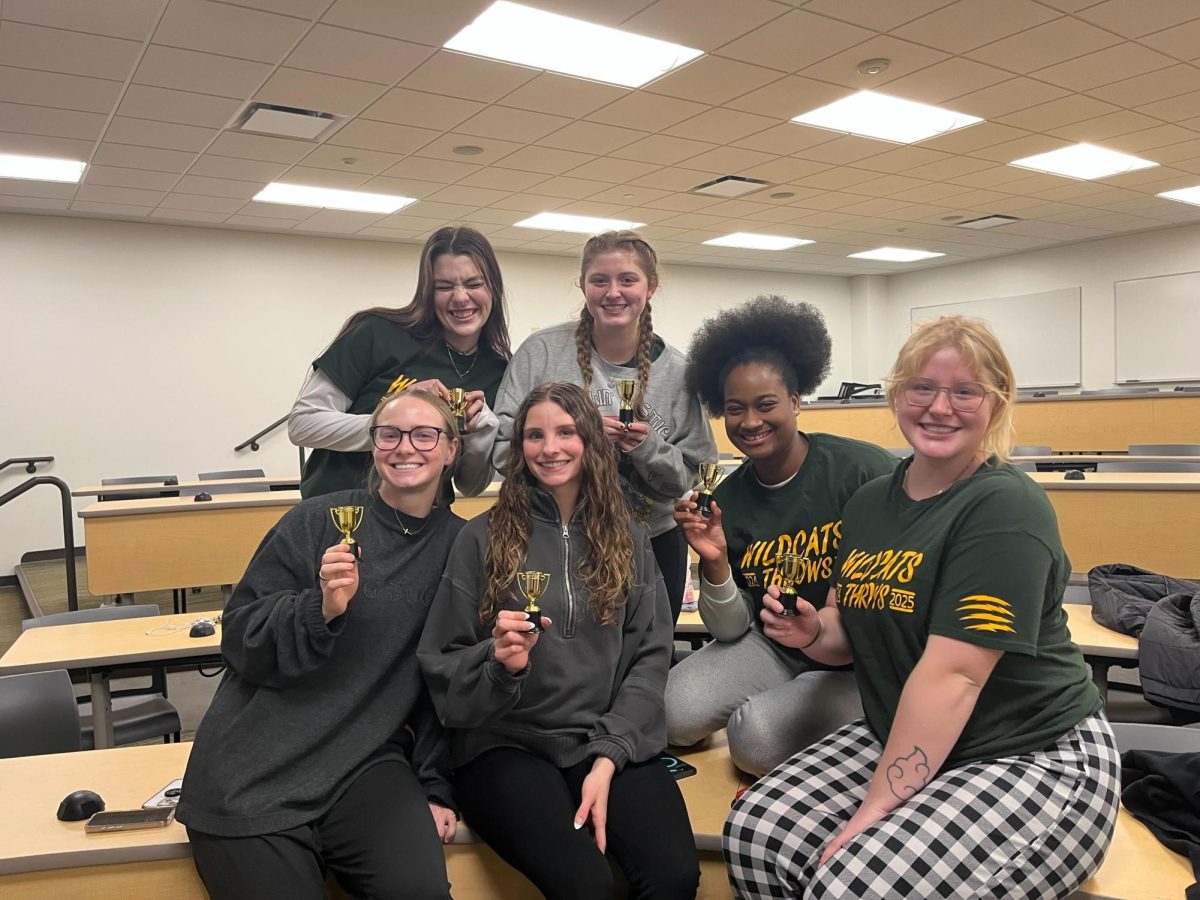This summer, NMU switched its primary food vendor—the company from which the university purchases about 90 percent of its food—from Gordon Food Service (GFS) to Reinhart Foodservice.
The new prime vendor contract with Reinhart began on July 1. It is a five-year agreement, with the option of one additional two-year extension, and it is for $3.2 million in food purchases
annually.
“If we’re able to provide better quality products at a better price, it’s a difference you can taste and it’s a difference that we should be able to pass on to students,” Paul Schoonveld, associate director of Dining Services, said. “If we’re successful in managing our finances, it directly impacts the students in a positive way.”
NMU had been in a prime vendor relationship with GFS since 2005, but when the university’s contract with that food service expired on June 30, new options were explored.
A committee from Dining Services and the Purchasing Department collaborated on the process, which began in August with writing a request for proposal. The request was sent out broadly, and three food distributors bid on the contract with NMU: Reinhart, Sysco and GFS.
Representatives from each of the vendors attended a mandatory preproposal conference and tour of campus on Dec. 6, so each company would understand NMU’s specific needs.
The 11-person committee that included administrators, NMU’s executive chef and registered dietician, as well as input from faculty, began the careful process of taste-test comparisons and reviewing each of the company’s offers, and eventually the group made the final unanimous decision to choose Reinhart.
So far the university has purchased about 1,900 different food products from Reinhart to serve at the different Dining Services locations, which include the Marketplace, the Wildcat Den, Fieras, Melted, Cat Trax, Simply Superior catering, concessions at the Superior Dome and more. The food products are also used for the culinary education programs.
With such a large need—in the vendor selection process—rather than comparing thousands of products from each of the three vendors, the committee focused on about 140 items that chefs particularly wanted to ensure the food distributers could supply in quantity and with good quality.
“We had to know they could stock those products because we’re very loyal to a certain caliber of food. It’s a sampling from across the board of some of those top items and looking at appropriate costs,” Schoonveld explained. “We weren’t willing to sacrifice quality for price.
“We also compared ingredients because we don’t want to get something with a lot of garbage in it; we want a clean product,” he added.
Sustainability was also a key factor in the decision. With Reinhart, food deliveries come from a warehouse located 8 miles from campus, which in turn is supplied by a distribution center in
Shawano, Wisconsin, whereas with GFS, trucks came from Brighton, which is over 400 miles away.
“I think it’s a good move for our students, and I think it’s a good move for [Reinhart],” Director of Dining Services Sharon Carey said. “For sustainability, it’s good to know trucks aren’t going 450 miles to bring product up and go back to bring more product up. I like that it supports the local economy. I think it’s a win-win for us as well as Reinhart foods.”
Other advantages of Reinhart include only a 2-percent markup over wholesale costs, five-day-a-week delivery, and “value added” benefits such as student scholarships, internships, guest speakers and donated products for events like the NMU’s Welcome Back Picnic.
Schoonveld said the relationship between vendor and client has also been better, partly because sales representatives are now closer and more accessible. In addition, the Reinhart sales representative assigned to the contract, Weston Bellefeuille, an NMU hospitality and tourism management alumnus, has been doing an
impressive job.


























